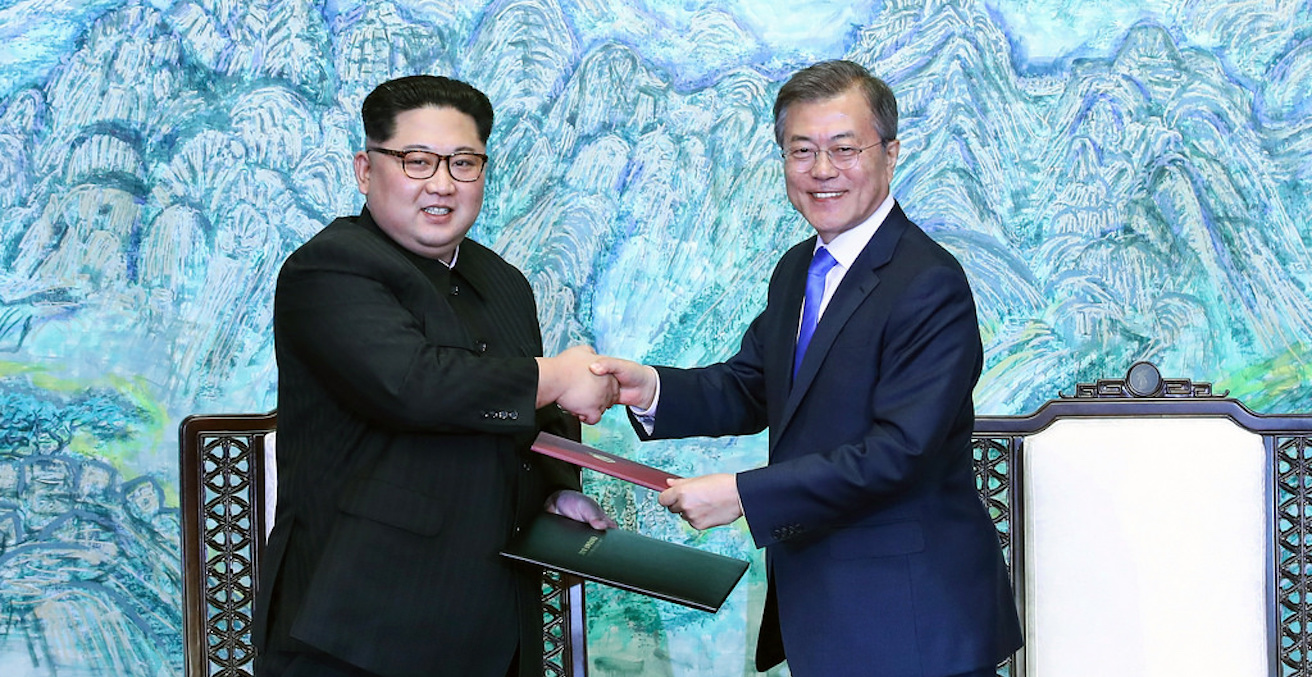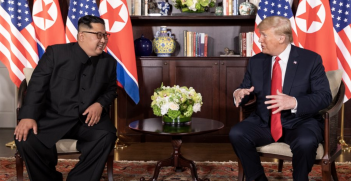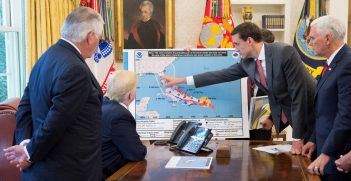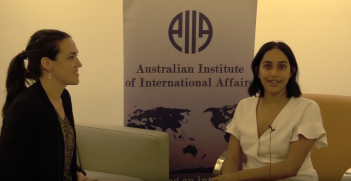New Zealand's Nuclear Diplomacy

For technology that hasn’t been used in conflict since 1945, nuclear weapons sure have a knack of getting on to the global agenda. This should not be surprising given they pose the greatest existential threat to humanity next to climate change.
At the recent diplomatic events in Washington DC and at Panmunjom, nuclear diplomacy was never far from the surface.
Visiting Donald Trump this month, French President Emmanuel Macron sought to preserve a nuclear deal painstakingly negotiated with Iran in 2015 by the five permanent members of the UN Security Council plus Germany. This “Joint Comprehensive Plan of Action” was heralded as a genuine breakthrough, one of the most important multilateral agreements in decades.
Presiding over the Security Council in July 2015, New Zealand gavelled in the resolution that gave legally binding effect to the deal, lifting sanctions on Iran in exchange for restrictions on its civil nuclear energy programme. Despite his white-knuckle handshakes and dandruff intimacy with Trump, Macron’s parting words from Washington suggested he hadn’t quite ticked off that objective.
A day later, on the other side of the world, President Kim Jong-un strode across the demarcation line at Panmunjom to become the first North Korean president to enter South Korea. As he sat down with South Korean President Moon Jae-in to forge a historic roadmap to peace and reconciliation, Kim may have felt his nuclear weapons programme gave him stature.
The Iran deal and the denuclearisation of the Korean Peninsula have more to do with geopolitics, big power rivalry and the nature of the regimes than with nuclear weapons, but the nukes do provide a common negotiating thread. So let’s consider the international legal architecture governing nuclear weapons.
In 1968, countries adopted the Nuclear Non-Proliferation Treaty (NPT). This treaty strikes a deal whereby countries with nuclear weapons agree to get rid of them, in exchange for countries without the bomb agreeing not to get it. The bit about other countries not getting nuclear weapons has worked. The first bit, not so much. The NPT also says countries can pursue nuclear energy for civil purposes, but since these programmes also help generate the ingredients for nuclear weapons, countries are expected to open their nuclear facilities to inspections.
Iran is a member of the NPT. North Korea was a member, but it pulled out in 2003 because it had turned its civil nuclear energy programme into a nuclear weapons programme.
Nuclear-armed India and Pakistan, as well as ambiguously nuclear-armed Israel, haven’t joined the NPT. Side note: NPT members Saudi Arabia (watching Iran), and Japan and South Korea (watching North Korea) have major civil nuclear energy programmes that raise eyebrows with their level of uranium enrichment.
There’s also the 1996 Comprehensive Test Ban Treaty that outlaws nuclear testing. Almost everyone’s signed this, other than North Korea, India and Pakistan. China, Egypt, Iran, Israel and the US have signed, but not ratified. They all need to ratify the treaty before it can enter into force and become binding international law. Saudi Arabia also has not signed.
Lastly, we have the 2017 Treaty on the Prohibition of Nuclear Weapons, which finally and explicitly makes nuclear weapons illegal under international law. Previously considered impossible, the treaty was a dramatic, people-driven effort for which the International Campaign to Abolish Nuclear Weapons won the 2017 Nobel Peace Prize. The nine nuclear-armed states have shunned this treaty, along with their allies that expect to be protected by nuclear weapons, including Australia.
So that’s the legal landscape. What does it tell us about the Iran deal and North Korea’s nuclear programme?
It tells us we should keep the Iran deal intact, both in terms of preventing the further spread of nuclear weapons and getting North Korea (and others) to take nuclear disarmament seriously. Iran is inside the NPT, not developing nuclear weapons. North Korea is outside the NPT with nuclear weapons. President Trump’s actions essentially punish Iran for nuclear compliance and reward North Korea for nuclear defiance. That risks making nuclear weapons look useful. This is not a judicious strategy.
Last Friday’s inter-Korean summit happened because the leaderships in both Seoul and Pyongyang wanted it to work. Nuclear disarmament relies on building the same sense of mutual interest. To prevent the production and use of weapons of mass destruction, countries are better served in the long run by negotiations than by bombs. The Iran deal was the result of decades of effort. To hammer it out, diplomats from Russia, China, the US, EU and Iran spent countless days, weeks and months sitting face to face. The same goes for the preparations of the inter-Korean summit. This human interaction is good for peace–it builds lasting trust and opens unexpected opportunities for co-operation.
Contrast that with the bombing of Syria in response to reports of chemical weapons attacks. Not only do missiles further endanger the civilian populations, but they set back the prospects of peace, mediation and co-operation amongst the states involved in conflicts. It is better to support civil society and build space for human rights, rather than build up a sense of injustice among local people with sanctions and bombs.
Some of us are privileged to live in countries where these matters seem distant. We should feel a responsibility in this privilege to redouble our support for peaceful resolution to tension and conflict.
With New Zealand’s prime minister generating prominence for New Zealand on the international stage, it has an opportunity to step up diplomatic efforts in this area as a champion for peace and disarmament. We should do so.
Thomas Nash led the global campaign to ban cluster bombs, co-founded UK-based disarmament group Article 36 and served on the board of the Nobel Prize-winning International Campaign to Abolish Nuclear Weapons.
Maty Nikkhou-O’Brien is Executive Director of the New Zealand Institute of International Affairs (NZIIA). While at the Institute, she has led over 50 initiatives: panel discussions, seminars, and conference to stimulate curiosity in world affairs for New Zealanders of all stripes. Prior to the NZIIA, Maty founded and directed the innovative Paris and Wellington-based think-tank Diplosphere.
This article was originally published in the Dominion Post on 1 May 2018. It is republished with permission.





